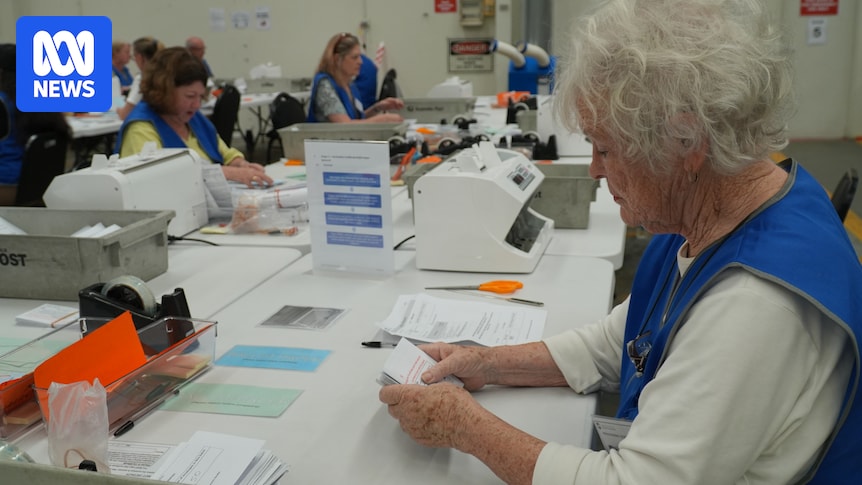
Bruce Reynolds will continue as the City of Perth’s Lord Mayor, as early figures from Western Australia’s local government elections reveal a voter turnout lower than anticipated. Results from polls across more than 100 local governments in the state began to emerge as counting resumed on Sunday.
Reynolds, who had been acting as lord mayor since Basil Zempilas transitioned to state politics, successfully held off five other candidates, including councillor Catherine Lezer and Viktor Ko. The businessman has previously stated that his primary focus is on mending the council’s relationship with the state government, a relationship that became strained under Zempilas’s leadership.
New Leadership Across WA
In other parts of Western Australia, new leadership is emerging. Melissa Harkins, the deputy mayor of Cottesloe, appears to have been elected to the top position. Harkins, who has served on the council for eight years, was endorsed by outgoing mayor Lorraine Young. Pending formal declaration, she has defeated her sole opponent, Kevin Morgan, who led the town from 2008 to 2013.
The Town of Claremont has voted to replace its long-serving mayor of 16 years, Jock Barker, with local business owner Peter Telford. Meanwhile, Tony Natale awaits formal confirmation as East Fremantle’s new mayor, having beaten competitor Thomas Fitzgerald.
Counting continues in several key mayoral contests. In the City of Fremantle, incumbent Hannah Fitzhardinge faces four challengers, including former Fremantle councillors Marija Vujcic and Ben Lawver. In Perth’s north, a seven-way race is underway to succeed Joondalup’s retiring mayor, Albert Jacobs. Among the candidates is former federal MP Ian Goodenough, who lost a preselection contest for his federal seat of Moore.
Concerns Over Voter Turnout
Early data from the Western Australian Electoral Commission (WAEC) indicates that 29.7% of postal votes were received, a decrease from the 32.1% turnout in the previous elections in 2023. In-person voting, which is only applicable to six councils, was recorded at 17.2% this year.
Voter turnout has averaged around 30 to 32% in recent elections.
A WAEC spokesperson mentioned that the final voter turnout figures for this year’s election would be confirmed by next week. Meanwhile, WA Local Government Association president Karen Chappel noted that a survey of councillors revealed that 98% of respondents did not support mandatory voting. This follows Local Government Minister Hannah Beazley’s consideration of making voting compulsory and extending councillor terms from two to four years.
Controversial Candidates and Unresolved Issues
The elections also saw several controversial figures vying for council positions across the state. Among them was Stephen Wells, a self-described “racist, sexist, democracy-scorning whites-lover,” who appears to have lost his bid for a seat in the City of Busselton, though results are yet to be formally declared.
In the Town of Mosman Park, candidate Samuel Croll, 20, is facing legal proceedings for allegedly performing a Nazi salute. Further south in Albany, Tamara Frewen, running on an “anti-woke” platform, has faced criticism for comparing a local pride group to Nazis on social media.
Independent politician Aussie Trump, formerly known as Ben Dawkins, was among the candidates in the Shire of Harvey. Provisional results suggest his attempt at a council position was unsuccessful. Originally a Labor MLC, Trump was expelled from the party after pleading guilty to 35 breaches of a domestic violence restraining order related to his former partner. He later joined One Nation but was removed from the party’s Legislative Council ticket by leader Pauline Hanson.
Suspended Councils and Future Elections
Recently, the debt-laden Shire of Coolgardie has been under scrutiny for “serious concern” regarding its financial management, yet Minister Beazley chose not to suspend its council. Of the 139 local governments in Western Australia, two electorates did not participate in this year’s elections.
The City of Nedlands council, including then-mayor Fiona Argyle, was dismissed in July and replaced with three commissioners following ongoing dysfunction that led to a mass resignation, rendering it inoperative. In late August, Port Hedland’s mayor resigned, necessitating the appointment of three commissioners to manage the council’s affairs.
Voters in Nedlands and Port Hedland are scheduled to return to the polls on March 28 next year, marking a critical juncture for these communities as they seek stable governance.






